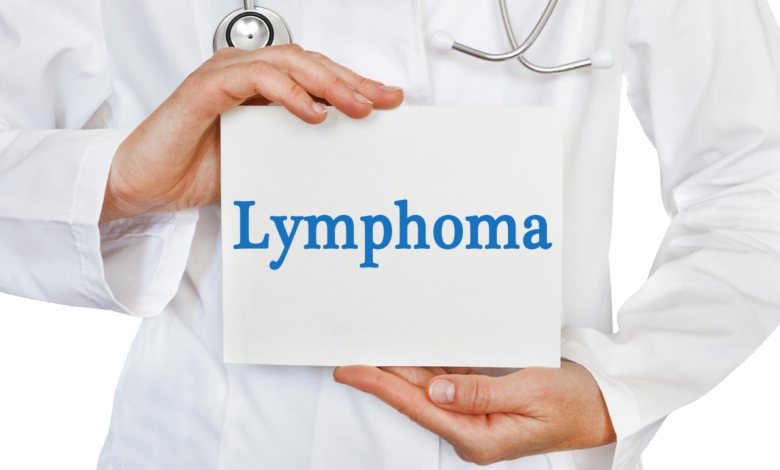Lymphoma: A cancer of the lymphatic system.

What is the Lymphoma?
Lymphoma is a type of cancer that affects the lymphatic system, which is part of the immune system. It occurs when lymphocytes, a type of white blood cell, grow abnormally and uncontrollably.
What are the symptom of Lymphoma?
Symptoms of lymphoma can vary depending on the type and location of the cancer. However, common symptoms include:
- Swollen lymph nodes: These are often found in the neck, armpits, or groin.
- Fatigue: Feeling tired or weak.
- Fever: Having a fever that doesn’t go away.
- Night sweats: Sweating heavily at night.
- Unexplained weight loss: Losing weight without trying.
- Itchy skin: Having itchy skin.
- Shortness of breath: Difficulty breathing.
- Chest pain: Pain in the chest.
- Abdominal pain: Pain in the abdomen.
Who can suffer from Lymphoma?
Lymphoma can affect people of all ages, but it is more common in adults. Some factors that may increase the risk of developing lymphoma include:
- Age: The risk of lymphoma increases with age.
- Weakened immune system: People with weakened immune systems, such as those with HIV/AIDS or who have undergone organ transplants, are at a higher risk.
- Certain infections: Some infections, such as Epstein-Barr virus (EBV) and human T-cell leukemia virus (HTLV), have been linked to lymphoma.
- Family history: Having a family history of lymphoma may increase the risk.
- Exposure to certain chemicals: Exposure to certain chemicals, such as pesticides and herbicides, has been linked to lymphoma.
What are the type of Lymphoma?
There are two main types of lymphoma: Hodgkin lymphoma and non-Hodgkin lymphoma.
- Hodgkin lymphoma: This type of lymphoma is characterized by the presence of Reed-Sternberg cells, a type of abnormal lymphocyte.
- Non-Hodgkin lymphoma: This type of lymphoma is more common and includes a variety of different subtypes.
Which diagnostic are available for the Lymphoma ?
· Physical exam: A doctor will examine the lymph nodes and other parts of the body.
· Blood tests: Blood tests can help to check for anemia, infections, and other abnormalities.
· Lymph node biopsy: A sample of lymph node tissue is removed and examined under a microscope.
· Imaging tests: Imaging tests, such as CT scans, MRIs, and PET scans, can help to determine the extent of the lymphoma.
What are the treatment of the Lymphoma ?
The treatment for lymphoma depends on the type of lymphoma, the stage of the cancer, and the patient’s overall health. Common treatments include:
- Chemotherapy: Using drugs to kill cancer cells.
- Radiation therapy: Using high-energy rays to kill cancer cells.
- Stem cell transplant: Replacing damaged bone marrow with healthy stem cells.
- Targeted therapy: Using drugs that target specific molecules involved in the growth and survival of cancer cells.
- Immunotherapy: Using the body’s immune system to fight cancer cells.
Which diet should I take ,if any ?
A healthy diet can help to support the immune system and reduce the side effects of treatment. Eating a variety of fruits, vegetables, whole grains, and lean protein is recommended.
Which speciality of the doctor will Lymphoma?
Lymphoma is treated by a hematologist-oncologist, who is a doctor who specializes in blood cancers.
In Lymphoma completely curable ?
The curability of lymphoma depends on the type of lymphoma, the stage of the cancer, and the patient’s response to treatment. Some types of lymphoma are more curable than others. With early diagnosis and effective treatment, many people with lymphoma can achieve long-term remission or even a cure.





